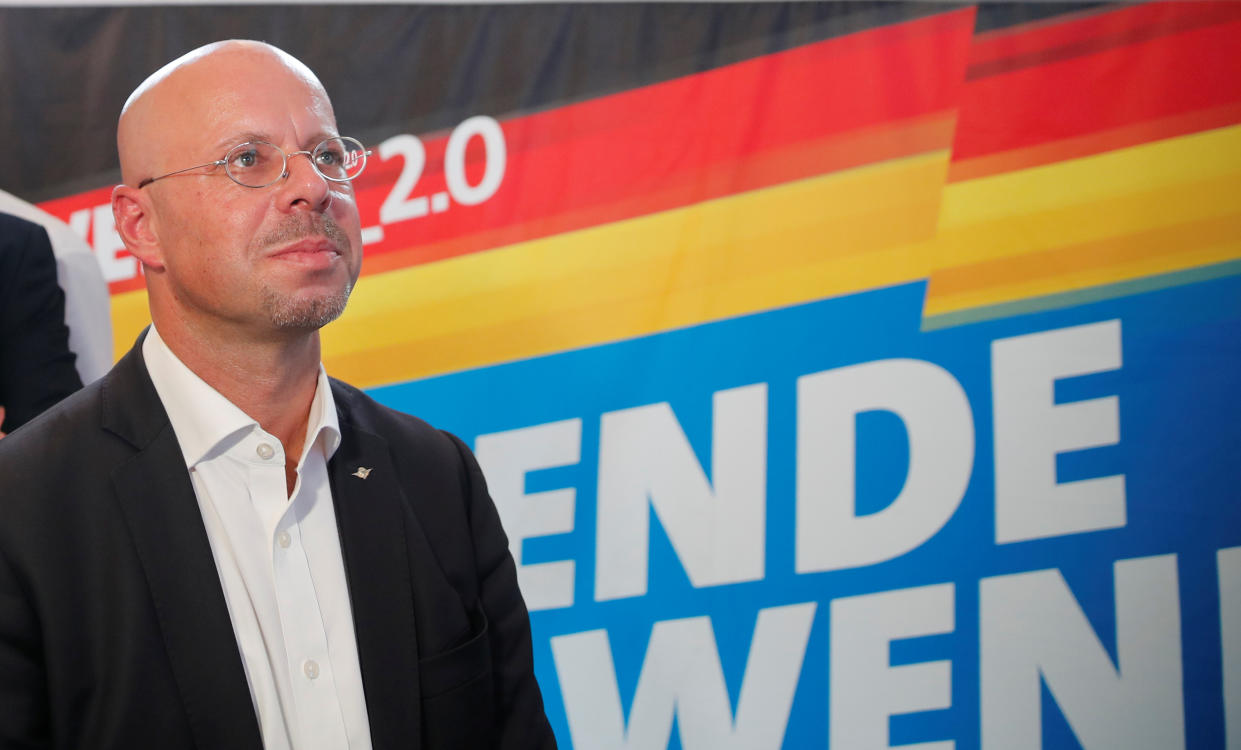Far-right AfD becomes second-biggest party in two eastern German states

Far-right Alternative for Germany (AfD) is now the second-largest party in the eastern states of Saxony and Brandenburg after Germans voted in state elections on Sunday.
While centrist parties still won in both states, the surge in support for the anti-immigrant AfD reflects a fracturing political landscape and a country far from immune to the populist waves that have swept the US, Britain, and other European countries.
In Brandenburg, the state that surrounds the capital Berlin, the Social Democrats (SPD) took 26%, the AfD 23.5%, and chancellor Angela Merkel’s party, the Christian Democrats (CDU), just 15.7%.
The CDU did much better in Saxony, with over 32% of the vote. The AfD came in at 27.8% and the SPD scraped under 8%. It is highly unlikely that any of the mainstream parties will enter a coalition with the AfD, which will make the process of forming state governments
The Greens, who have traditionally not had a lot of support in the formerly Communist east of the country, grabbed 8.2% in Saxony and over 10% in Brandenburg, reflecting their growing popularity in Germany as a whole.
While German president Walter Steinmeier asked for forgiveness on behalf of Germany at a remembrance ceremony to mark the 80th anniversary of the Nazi invasion of Poland, voters in Saxony and Brandenburg expressed their discontent with the government; the results are likely to send tremors through the federal government in Berlin.
It could reignite calls for the Social Democrats to pull out of the loveless coalition with chancellor’s CDU, something that has been predicted countless times. This would leave the CDU in a minority government or trigger elections before 2021.
Stoking discontent

The far-right party’s results were not a huge surprise — some mid-August polls even put it ahead of the CDU.
The AfD has exploited unhappiness and resentment in the former East German states, where unemployment and poverty is higher than elsewhere in the country and many feel they have not reaped the benefits of the strong economy. These feelings of being “second-class citizens” have helped the AfD gain ground. During the 2017 general election they capitalised on anti-refugee sentiment, now, more recently, on Germany’s pledge to exit coal mining by 2038 — Saxony is a major lignite miner.
For the state election in Brandenburg, the AfD’s campaign focused on the fall of the Berlin Wall 30 years ago, when East Germany went from being Communist to being a liberal democracy, a period called the “Wende” (change) in German. The party urged voters to “complete the Wende” of 1989 and seize control of their political destiny again, carrying echoes of both the pro-Brexit campaigns in Britain, and Trump’s “Make America Great Again.”
Andreas Kalbitz, the AfD’s top candidate in Brandenburg and a member of its extreme wing “Flügel,” told journalists in Berlin in August that people in eastern states “have never forgotten that big cars came from the West with people who then closed businesses.”
Kalbitz has had ties with a number of extremist groups and projects in the past. Der Spiegel magazine reported last week that he had attended a neo-Nazi march in Athens in 2007, and stayed in a hotel with German far-right extremists, including former National Democratic Party of Germany leader Udo Voigt. Kalbitz admitted to being at the rally, but denied he was part of the NPD delegation.

